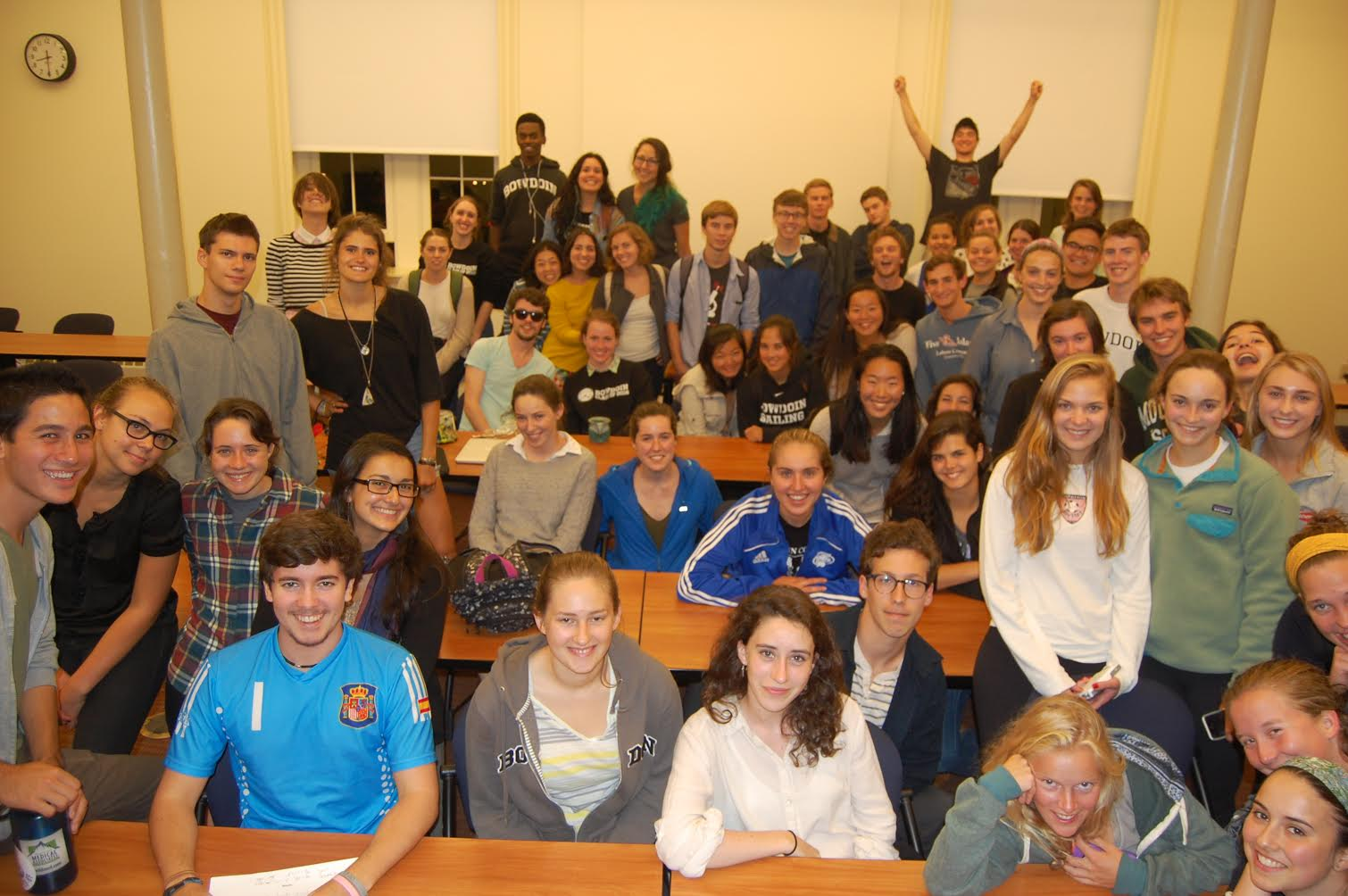On September 22nd, I’m skipping school.
At 12:00pm on any normal Monday, I’d be sitting in “The History of Energy” at my small liberal arts school in midcoast Maine, learning about the fossil fuel extraction that got us here and where we’re headed next. The day after the People’s Climate March, however, I’m trading the classroom to confront the board room to stand with the #FloodWallStreet call to action, because the history of energy isn’t in a textbook – It’s on Wall Street.
In my hometown of Deer Park, Texas – just outside of Houston – I’ve seen firsthand how our economic system is tied to the environmental injustice of the fossil fuel industry. Coming from a community financially dependent on companies like Shell, Exxon Mobil, and Dow Chemical, I joined Bowdoin’s divestment campaign this past year because I didn’t want my college investing in and profiting from an industry that polluted the air of my friends and loved ones. I’ve realized, however, that the real battle isn’t against the refineries in Houston, nor against the people who work there to feed their families. The heart of the movement is about changing the system that allows such practices to continue, and by bolstering the extractive economy of fossil fuel companies, Wall Street has entrenched itself in the climate crisis.
It’s hard to dispute the interconnectedness of the fossil fuel industry and Wall Street. The big banks are in bed with the carbon industry, thus financing new extraction projects and collaborating on changing the rules and regulations through lobbying groups like ALEC. But Wall Street isn’t only in bed with the industry – Wall Street firms and fossil fuel companies have entered our institutions of higher education. From big bank big-wigs on university boards of trustees, to the high finance resumes of our college presidents, the connection to our school systems is all too clear. The people in our board rooms are in those offices, and it’s time we address them front and center.
Campaigns across the country have fought to meet with their board of trustees, but this time, we’re not requesting a meeting. We’re flooding Wall Street to say that we believe a “good economy” invests in industries that value the people who sustain it; to call for real investments in a just future for all; and to show our schools, our board members, and the big banks that if investing in an extractive economy is business as usual, business hours are over. We won’t stand any longer for an industry that’s destroying our environment and our lives. It’s time we stand up for our futures by sitting in on Wall Street.
In our class last Wednesday, my professor said that climate change in the History of Energy was “the elephant in the room.” We’re never going to address the topic directly, but climate change affects all aspects of our energy system – where we’ve been, where we are, and where we’re going. While we can’t change the history of energy, my hope for next Monday is to take its future into our own hands. I may be missing class for this, but I think my professor will understand.
Story by Allyson Gross, student at Bowdin College.
Photo by Miles Goodrich.
*Participation in this event is being led by students of the divestment movement.
To attend: Student Divestment Bloc at Flood Wall Street
When: Monday, September 22, 8:30 AM
Where: SE corner of Battery Park, NYC
Why: Student divestment activists will take part in the Flood Wall Street action targeting Wall Street profiteers’ influence on campus and impact on our climate.https://www.dropbox.com/s/9gw5rxgoo4289tf/Flood%20Wall%20Street.mp4?dl=0
RSVP: docs.google.com/forms/d/
